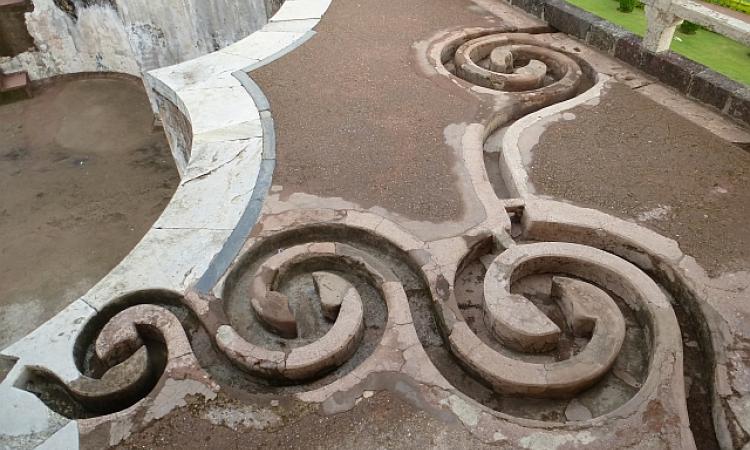
Ghiyas-ud-din-khilji is a man about whom history is confused. Contemporary records speak of 'a lover of peace, particular in his daily prayers'. Modern references invariably mention his (unsubstantiated) harem of 15,000 women. There is only one thing we can all agree on: Ghiyas-ud-din-khilji and his anonymous but talented architect built a marvellous structure somewhere around AD 1469-1501 -- the splendid Jahaz Mahal (Ship-Palace) in Mandu, Madhya Pradesh.
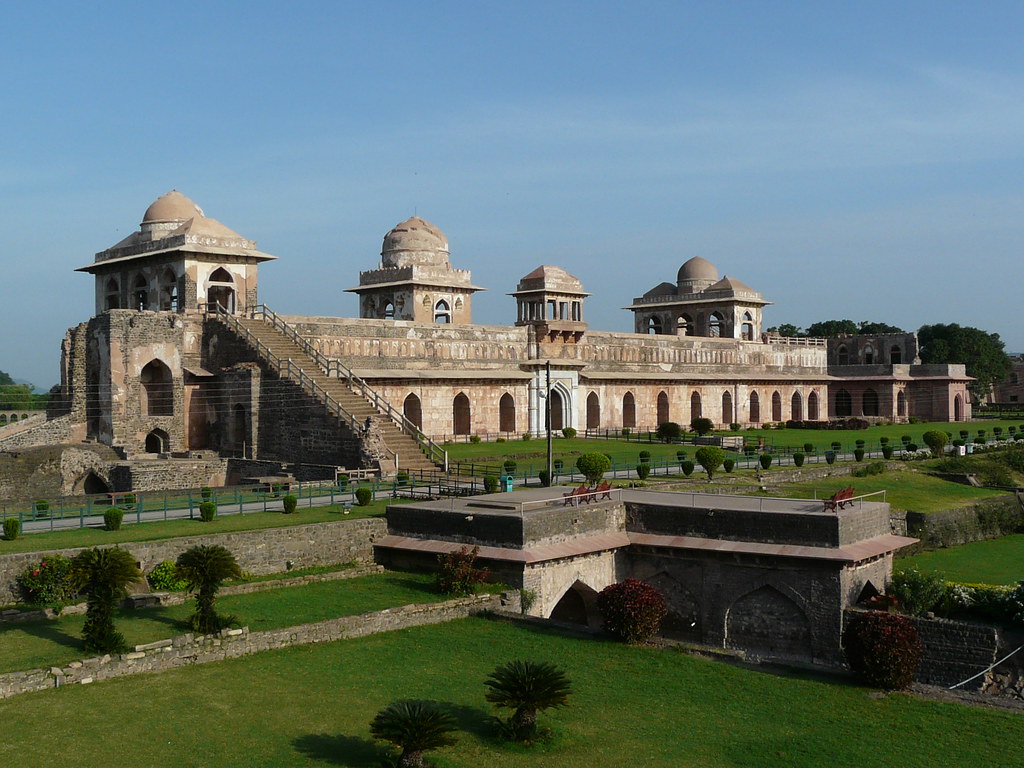
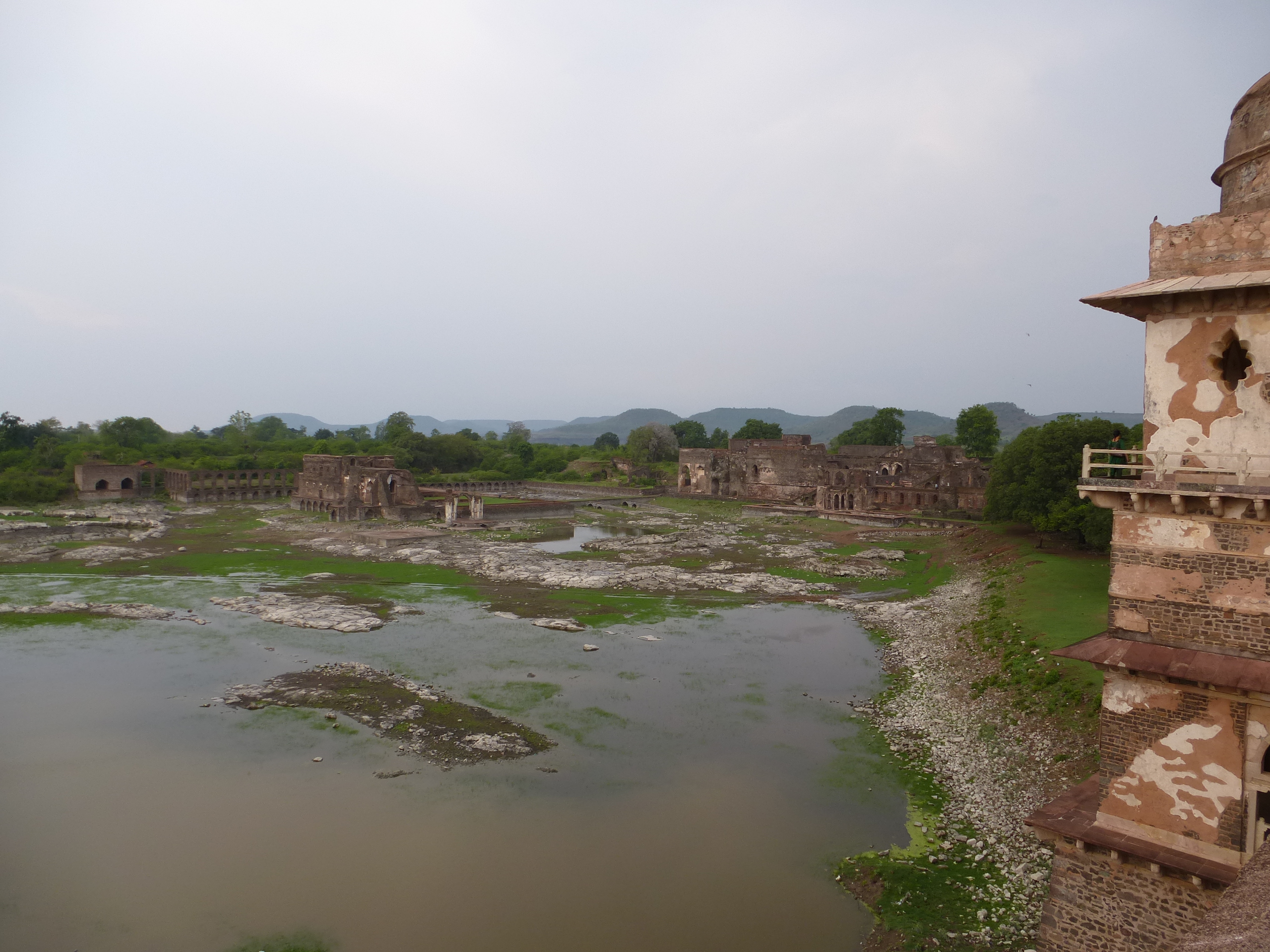
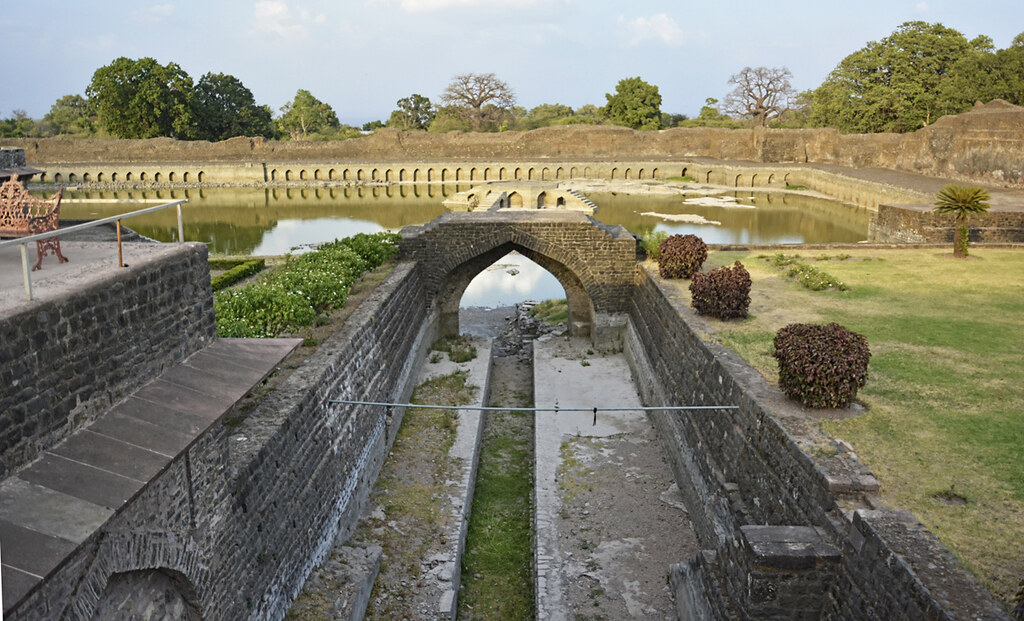
But this is not all.
Light and darkness
In addition to these huge tanks, Jahaz Mahal boasts of several wells within the structure. The Andheri Baori (dark well), which is inside the palace, was used to cool it down. Today, 1500 people of Mandu use water from this baori.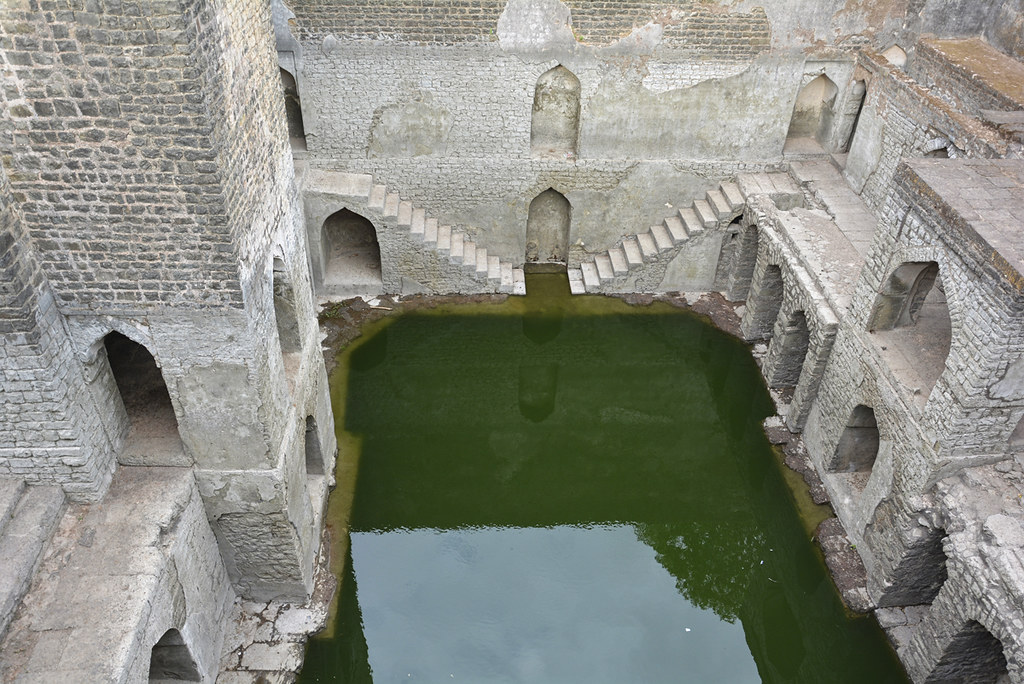
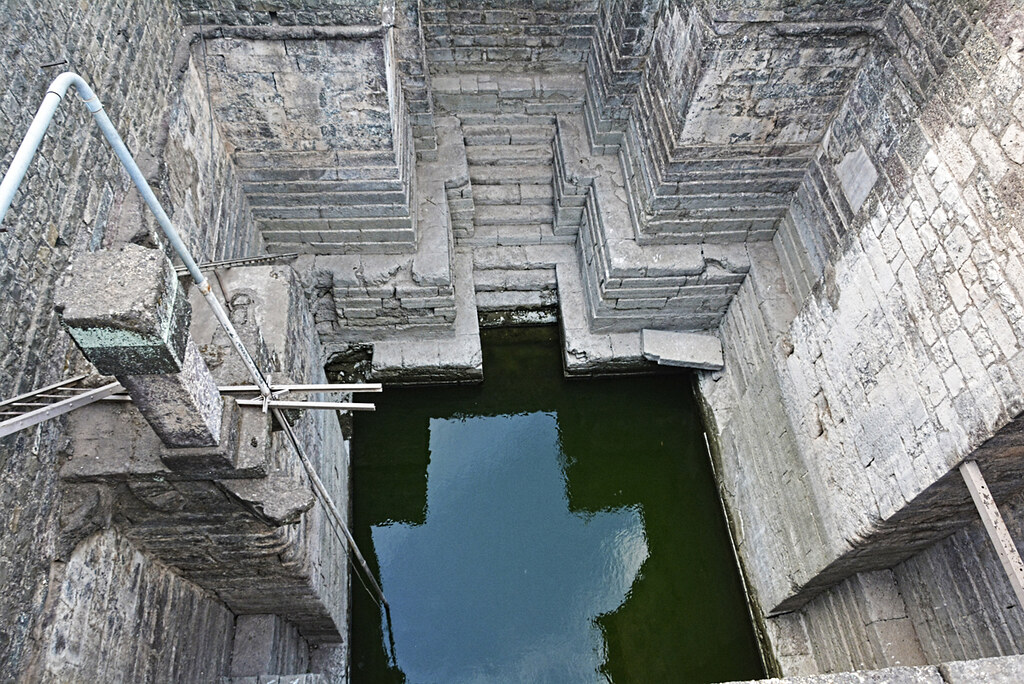
Swimming under the stars
In addition to these functional aspects, there were some areas of the palace that were exclusively meant for fun and frolic. There are two beautiful pools on the roof and the ground floor of the palace with plenty of seating – a perfect place to relax from the hot sun. Incredibly, both the pools are filled with rainwater.
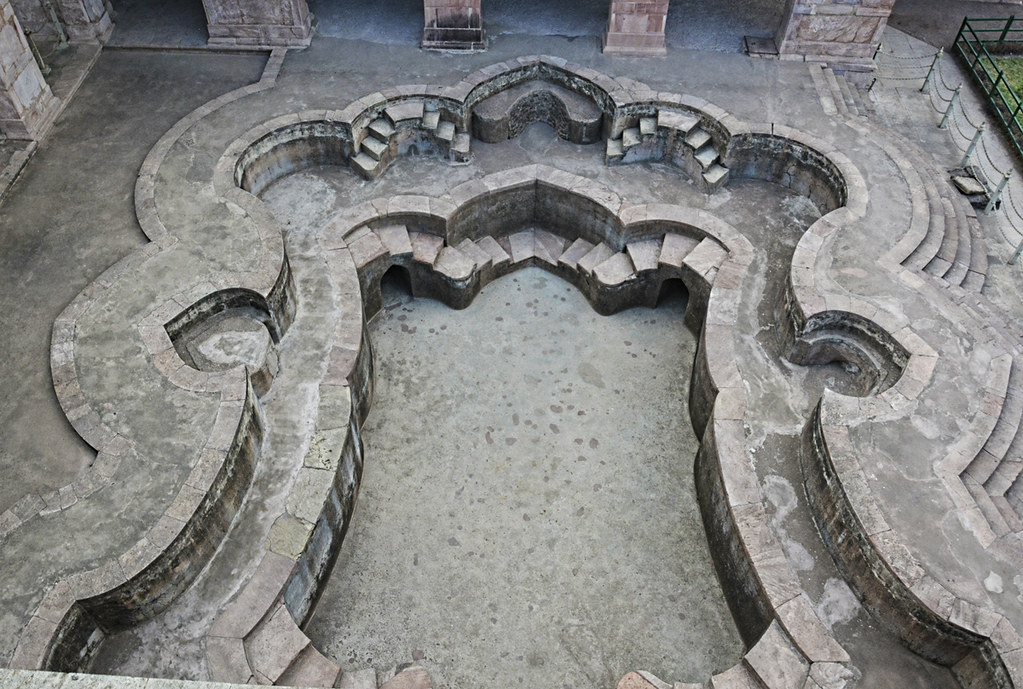
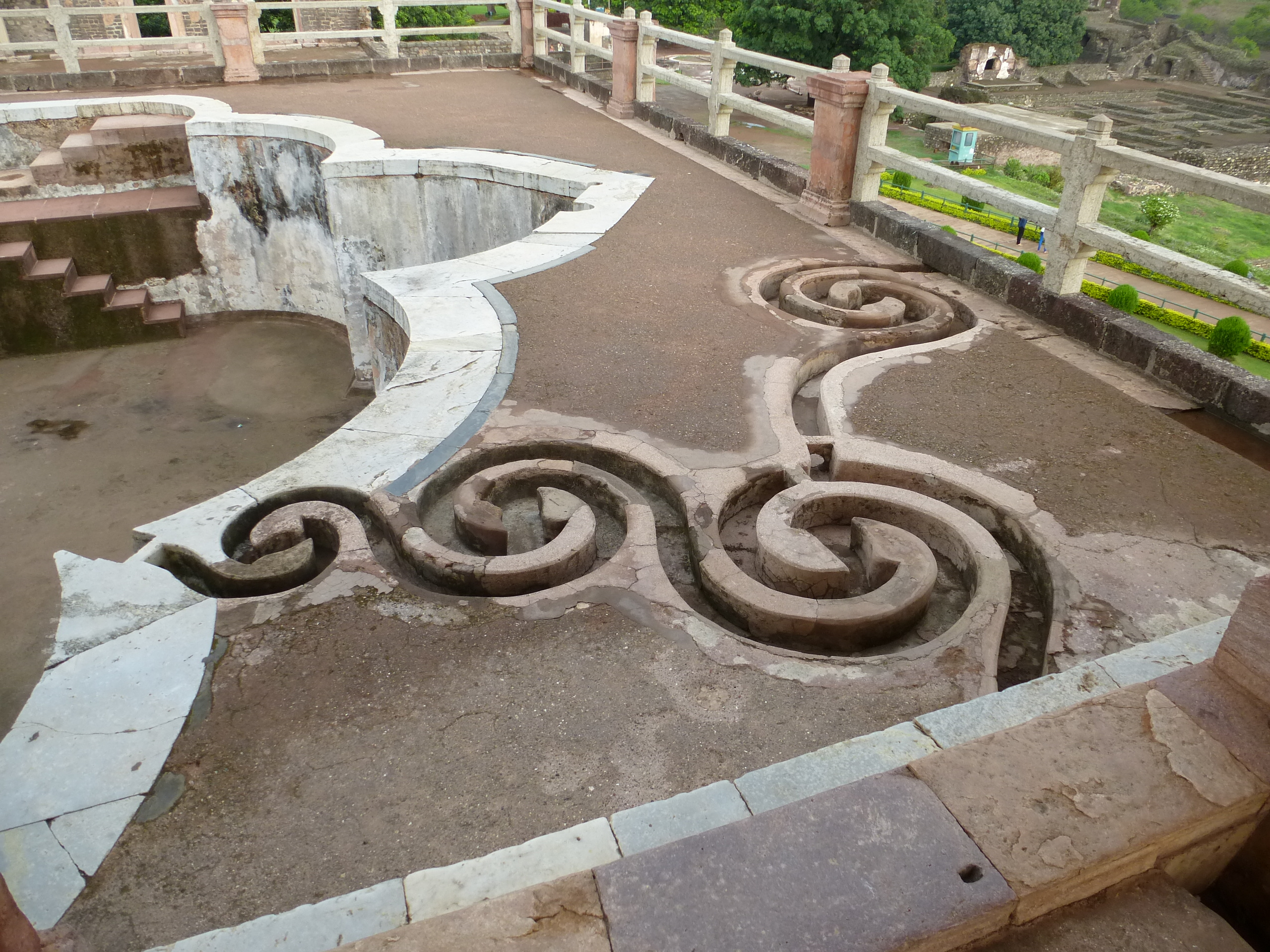
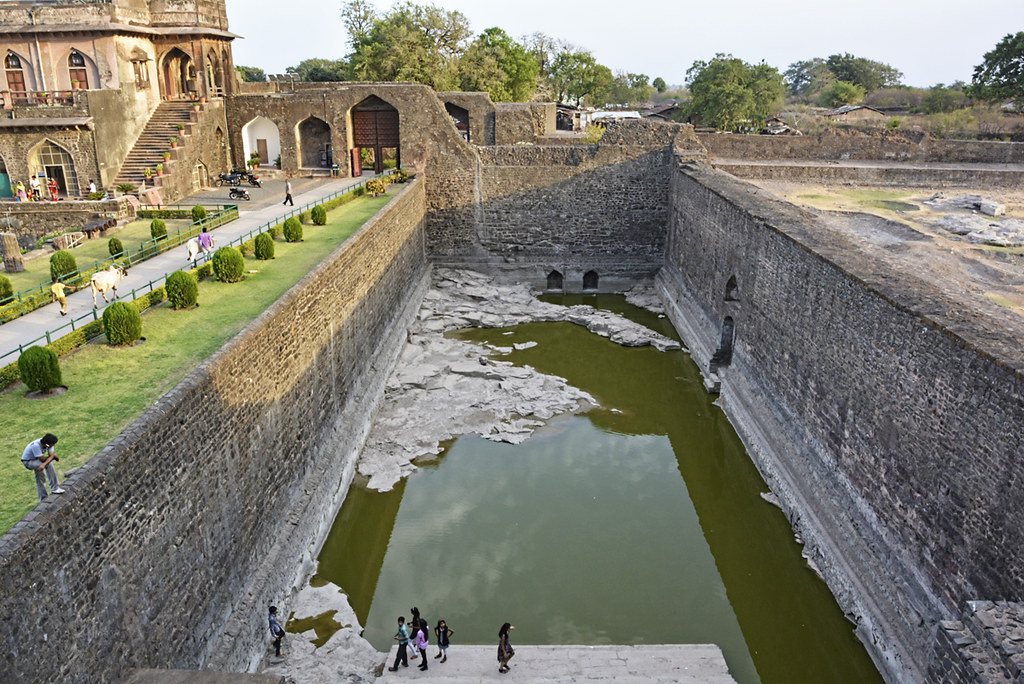
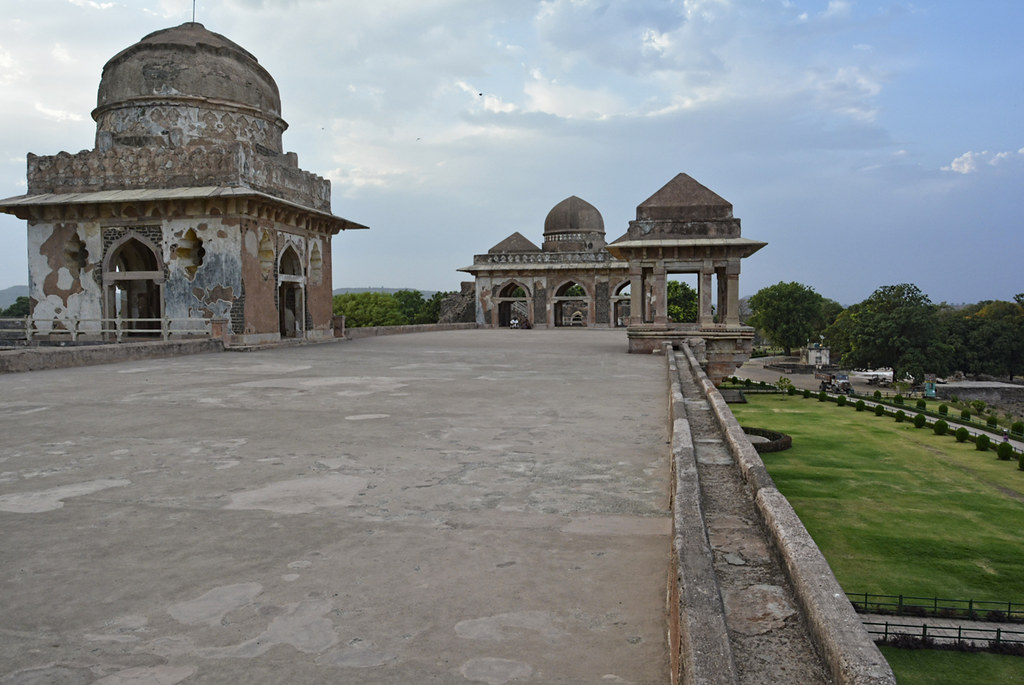
Designing with nature
There are several stories about other marvels within Jahaz Mahal such a mentions of steam baths and hot water pools, and of slides that led down to Kapur Talab from the roof of Jahaz Mahal. Little of these remain.
More tragic than the loss of a heated swimming pool is the decline of our architectural aesthetics and knowledge, at least when it comes to what is today termed as passive solar architecture or designing a building in conjunction with the earth processes around it so that heating and cooling occur naturally. Jahaz Mahal has incorporated several of these principles such as site placement, use of rainwater, design of opening, and it has also done so with a mix of playfulness and elegance. Instead of being an 'add-on', wind and water are woven through the fabric of Jahaz Mahal. Whether interested in architecture or not, this place is a must-visit.
How to reach Jahaz Mahal
By Air:
Indore's Devi Ahilya Bai Airport is the nearest airport, and is about a 100 kilometers away.
By Train/ Railways:
Nearest railway station is Indore Junction, about 95 kms from Mandu
By Bus / Roadways:
Mandu is close to the Agra-Mumbai highway.